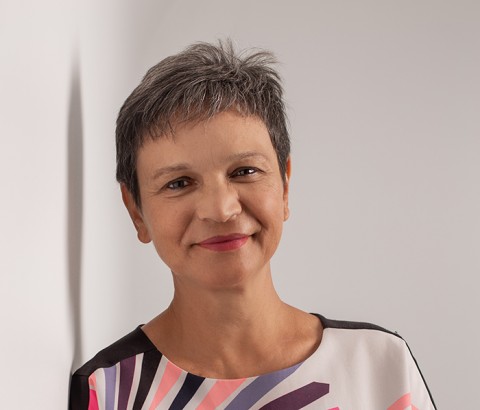
The Francophone University Agency (AUF) – Western Europe regional office has supported Science & You since 2012. This international network of higher education institutions subscribes to the event’s values of sharing knowledge. Pr. Olfa Zéribi, director of AUF Western Europe answers our questions.
AUF has been a loyal partner of “Science & You” since 2012: what does this event represent for you?
The Agency is particularly proud to be a partner of “Science & You”, as this international event reflects the commitments that drive AUF. As a forum for discussions, it helps to raise the profile of scientific research in French-speaking regions on the global stage and thus to give fresh thought to the relationship between science and society. It was thus only natural that an event which seeks to actively participate in scientific outreach for society, between institutions, scientific communities and the general public, would strike a chord with AUF.
What is more, “Science & You” has been designed as a touring event: previously held in Nancy, Montreal and even Beijing, it plays a part in defending the values upheld by AUF, including the sharing of and access to knowledge between specialists and the general public, from an international perspective.
What are the challenges of scientific outreach for universities and academics?
The question of scientific outreach appears to be of particular importance for higher education and research institutions whose staff include scientific experts. Its relevance is now clearer than ever in light of the myriad crises we are currently grappling with, and which are putting the relationship between science and society increasingly under the microscope. Far from being insignificant, the strategy of explaining science in plain, easy-to-understand terms as a means of imparting new knowledge is one of the most commonly used approaches of scientific outreach. It entails making knowledge or research findings accessible to the general public by adapting and even simplifying the key facts, often via a more entertaining and flexible format than the model of scientific conferences. A wide array of such initiatives aimed at engaging with a wider audience are proving hugely popular worldwide, such as the “my thesis in 180 seconds” competition which AUF jointly coordinates across 27 countries and the international committee of which it has been a member since 2015.
In addition to its objectives of communicating scientific or university findings more widely, scientific outreach is also about relaying the general public’s contributions and questions back to scientific experts. The latter can then take these on board in their own research considerations. This two-way process between researchers and the general public is expected to develop as part of the thought processes into the way universities are run. It very clearly represents a way forward, a key driver, for university and research structures to bring their social missions and their stance as regards the rest of society up-to-date. Some universities have already wised up to this and decided to engage in a proactive approach around this theme. For its part, AUF also organises a host of scientific outreach events including workshops, training programmes and webinars – the open-access digital platform RaccourSci, in partnership with the Association for the promotion of French language research (ACFAS), is one such example.
You support the contribution of PhD students involved in Science & You: in what way is it important to get involved in advocating for doctoral assistance?
It is particularly important for AUF to show its support for researchers who embark on a scientific project. Our agency endeavours as far as possible to support any initiative aimed at promoting the research conducted by our community.
Our Agency supports all forms of initiative in which scientific expertise connects with our society. Moreover, careful horizon scanning of new research themes is also carried out by allowing PhD students to discuss their knowledge with peers and compare their diverse perspectives. We help young researchers to access an international mobility network and, in this way, contribute to the high appeal of the French-language scientific community.
As part of its social responsibility duty, AUF can relate to these objectives in which young researchers participate at their level, and values being able to raise the profile of their scientific contributions to society.
